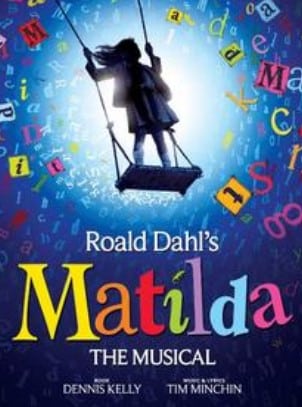“Matilda the Musical” has burst onto the Netflix scene, and you my friend decided to give it a go.
I don’t blame you! I put it on too because as a child of the 80’s I loved the book and the 1996 movie version! Perhaps you also remember it from way back then or just wanted to see what the fuss was about.
Why wouldn’t we pop it on, it is a sunny silly story… isn’t it?
Now as the credits roll or perhaps halfway through, you have found tears running down your face. Am I right in guessing that you have some tightness in your chest and a sinking feeling in your stomach? I’m not a mind reader; I know this because I’m right here with you.
You aren’t weird, this is a trauma response.
“Matilda” hits on many sad themes often present in situations of childhood abuse — feeling unwanted, being neglected, keeping secrets, bullying, misuse of power, hopelessness, defenselessness, unjust punishments, dreaming of fantastic rescues, and of course physical/psychological abuse. It’s heavy to read that sentence, let alone watch a two-hour musical on the subject of trauma.
So if you are overwhelmed, sad, upset, hurt, or otherwise triggered — it’s OK! You are not a flawed human for having these responses. This isn’t an overreaction, your feelings are real, and you are not alone in feeling them. I know this as a fact because I feel them too.
“Matilda” may reveal or refresh the memories of things you once went through — including what you wished for. The story itself ends on a happy note but can also be a stark reminder that you didn’t develop telekinesis or find yourself in highly improved situations. The pain, grief, anger, and sadness you feel over that is justified.
What Matilda and the other children experienced wasn’t right, and what you experienced wasn’t right either. If you didn’t have a Miss. Honey or a kind Librarian to help guide you, I’m sorry for that and I wish you did. I wish more people saw you and helped you.
It is hard to see a traumatic story flash across your screen in a way that you didn’t expect or weren’t ready for, so be kind to yourself and reach out for your support if need be. Remind yourself that you are now protected and you can keep the child version of you safe.
I know it’s not easy, but I know that things will eventually shift and soon you’ll feel more like yourself. Until then it’s a natural response to need to cry, curl up into a sadness ball, chat with a therapist, or even find yourself watching it again to understand yourself better.
You aren’t broken. It was triggering, and you’ll move through it with time.
It’s also perfectly fine if parts of you enjoyed the movie; I did too.
-Heidi
PS. If it feels safe to do so, you could imagine yourself vanquishing those who were abusive to you with Matilda-style magical powers—just a thought.
If you’d like to follow along with my journey, you can find me on Instagram as @mentalhealthyxe.
This article was originally published on The Mighty.
Guest Post Disclaimer: Any and all information shared in this guest blog post is intended for educational and informational purposes only. Nothing in this blog post, nor any content on CPTSDfoundation.org, is a supplement for or supersedes the relationship and direction of your medical or mental health providers. Thoughts, ideas, or opinions expressed by the writer of this guest blog do not necessarily reflect those of CPTSD Foundation. For more information, see our Privacy Policy and Full Disclaimer.

Heidi Fischer is a mental health advocate who lives in Saskatoon, Canada. Heidi enjoys writing about her personal experience with C-PTSD, Depression, and Anxiety. Heidi is the creator of a popular mental health Instagram called @mentalhealthyxe and can also be found on her website mentalhealthyxe.com.





My trigger.. me im 57 soon to be 58. I was doing okay.. the child inside. I just can’t seem to keep her feeling safe or needed.
Just kind of feel a little secure in this dark space.. maybe because that’s all I knew.. but the nice thing about it is, my visits to this dark space have gotten so much shorter. I TRY TO B PERFECT.CANT